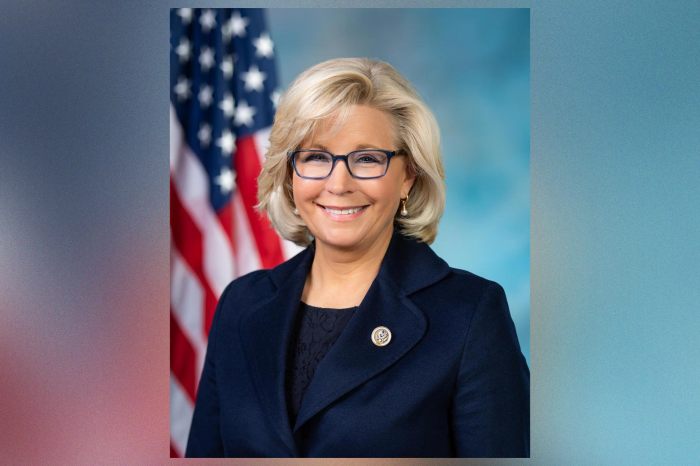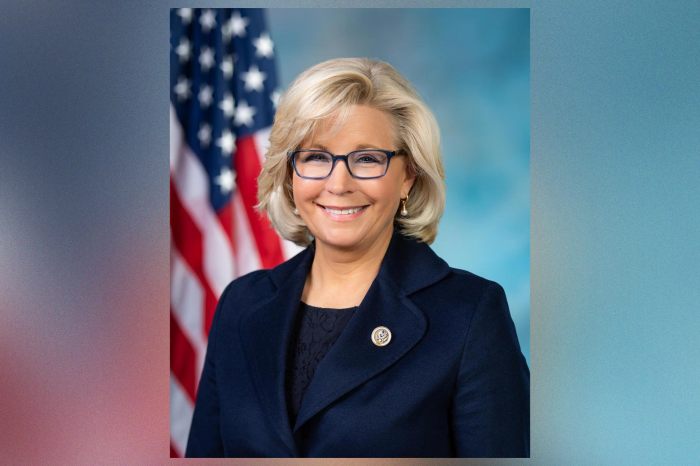
Liz Cheney Invokes Lincoln and Grant in Impassioned Concession Speech
Liz Cheney Invokes Lincoln and Grant in Impassioned Concession Speech, a speech delivered after her loss in the Wyoming Republican primary, resonated far beyond the confines of her own campaign. Cheney, a vocal critic of former President Donald Trump and his role in the January 6th Capitol attack, used her concession speech to draw parallels between her own fight for democracy and the struggles faced by Abraham Lincoln and Ulysses S.
Grant during the Civil War. Her invocation of these historical figures, known for their unwavering commitment to preserving the Union, served as a powerful testament to Cheney’s own convictions and her determination to uphold democratic principles in the face of political adversity.
The speech, delivered with both passion and conviction, sparked widespread debate and analysis. Some viewed it as a defiant act of resistance against the current political climate, while others saw it as a farewell to Cheney’s political career. Regardless of one’s perspective, the speech’s impact was undeniable, highlighting the deep divisions within the Republican Party and the ongoing struggle to define the future of American democracy.
Liz Cheney’s Concession Speech
Liz Cheney’s concession speech, delivered on August 16, 2022, marked the end of her political career in the House of Representatives. She lost her Wyoming primary election to Harriet Hageman, a candidate endorsed by former President Donald Trump. Cheney’s defeat was a resounding one, highlighting the deep divide within the Republican Party and the continued influence of Trump’s supporters.
The Context of Liz Cheney’s Concession Speech
Cheney’s concession speech came after a bruising primary campaign where she faced intense criticism from Trump and his allies for her vocal condemnation of the January 6th Capitol riot and her role in the House select committee investigating the attack.
Her political standing within the Republican Party had drastically changed, and her defeat was widely seen as a referendum on her stance against Trump.
The Significance of Invoking Lincoln and Grant
In her speech, Cheney invoked the legacies of Abraham Lincoln and Ulysses S. Grant, two prominent figures in American history known for their unwavering commitment to upholding the Constitution and preserving the Union. This choice was significant because it positioned Cheney as a defender of American democracy and a champion of principles that she believed were under threat.
Liz Cheney’s impassioned concession speech, invoking the legacy of Lincoln and Grant, highlighted a deep commitment to democratic principles. While her loss was a significant blow, it also underscored the urgent need for responsible action in safeguarding our democracy.
This need is reflected in the recent passage of bills in California, aimed at content regulation and child safety in social media , which address the growing concerns about online platforms and their impact on our society. Cheney’s call for vigilance and her dedication to upholding democratic ideals resonate with these efforts to protect our shared future.
By drawing parallels to Lincoln and Grant, Cheney sought to elevate her own position and cast herself as a true Republican, even as she was being ostracized by the party’s current leadership.
The Key Themes and Messages Conveyed in the Speech
Cheney’s speech was a powerful defense of democracy and a rebuke of the Republican Party’s embrace of Trump’s false claims about the 2020 election. She emphasized the importance of upholding the Constitution and the rule of law, arguing that these principles were essential for the survival of American democracy.
Liz Cheney’s concession speech, invoking the legacies of Lincoln and Grant, highlighted the enduring importance of upholding democratic principles. It’s a stark contrast to the current political climate, where even the most basic forms of representation seem to be under attack.
This reminds me of the recent criticism by Vestager, who slammed the Capitals’ lack of effort in naming women commissioners , a clear example of the persistent struggle for gender equality. Cheney’s impassioned speech serves as a potent reminder that the fight for democracy and equality requires constant vigilance and commitment, even in the face of adversity.
She also condemned the spread of misinformation and the efforts to undermine the legitimacy of elections.
“This is a fight for the soul of our nation. It’s a fight that has been waged throughout our history. It’s a fight that we must win. And we will win.”
Notable Quotes and Excerpts from the Speech
Cheney’s speech included several notable quotes that highlighted her commitment to democracy and her willingness to stand up for her principles, even in the face of political pressure.
“I believe that this moment in our nation’s history calls for honesty, for courage, and for clear understanding. I believe that we must not abandon our principles, or our values, or our commitment to the Constitution.”
“I will never stop fighting for our republic. I will never stop fighting for the truth. I will never stop fighting for our Constitution. And I will never stop fighting for the future of our nation.”
Lincoln and Grant
Abraham Lincoln and Ulysses S. Grant are two of the most iconic figures in American history, both playing pivotal roles in the preservation of the Union during the Civil War. Their legacies continue to resonate in contemporary America, shaping political discourse and informing national identity.
Lincoln and Grant’s Roles in the Civil War
Lincoln, the 16th President of the United States, led the nation through its greatest crisis. He skillfully navigated the political landscape, issuing the Emancipation Proclamation, which declared the freedom of enslaved people in Confederate states. He also guided the passage of the 13th Amendment, abolishing slavery.
Grant, a skilled military strategist, emerged as the Union’s most successful general. He orchestrated a series of decisive victories, ultimately leading to the surrender of Confederate forces at Appomattox Court House in 1865.
Liz Cheney’s concession speech, invoking Lincoln and Grant, was a powerful reminder of the enduring principles of democracy. It was a stark contrast to the heated rhetoric that dominated the recent election, but it also brought to mind the wild swings of the NFL season.
Just like Cheney’s defeat, the early-season hype surrounding Bryce Young seems to be fading, while the Buccaneers are looking surprisingly strong, as highlighted in this analysis of Week 2 reactions: nfl week 2 knee jerk reactions bryce young era needs to end bucs are for real.
Cheney’s speech, however, remains a powerful testament to the importance of principled leadership, even in the face of defeat.
Leadership Styles and Approaches to National Challenges
Lincoln and Grant, while both dedicated to the Union cause, possessed distinct leadership styles. Lincoln, a master of rhetoric and persuasion, relied on diplomacy and compromise to unite a divided nation. He believed in the power of words to inspire and unify.
Grant, a man of action, preferred a direct and pragmatic approach. He was known for his unwavering determination and his ability to execute complex military operations.
Legacy and Relevance to Contemporary America
The legacies of Lincoln and Grant continue to inspire and inform American politics. Lincoln’s commitment to unity and equality remains a guiding principle for many, particularly in the face of political polarization. Grant’s military prowess and unwavering resolve serve as a reminder of the importance of leadership in times of crisis.
Both figures exemplify the ideals of patriotism, perseverance, and the pursuit of a more perfect Union. Their contributions to the preservation of the Union remain central to the American narrative, shaping the nation’s identity and inspiring generations of leaders.
Cheney’s Political Position: Liz Cheney Invokes Lincoln And Grant In Impassioned Concession Speech

Liz Cheney, a Republican congresswoman from Wyoming, has emerged as a vocal critic of former President Donald Trump and his actions surrounding the January 6th Capitol attack. Her political stance on key issues, particularly those related to the attack, has solidified her position as a prominent figure in the ongoing battle within the Republican Party.
Cheney’s unwavering commitment to upholding the Constitution and condemning Trump’s efforts to overturn the 2020 election results has positioned her as a leading voice for accountability. Her strong stance has alienated her from many within the Republican Party, leading to her defeat in the Wyoming primary election.
Cheney’s Stance on January 6th
Cheney’s position on the January 6th Capitol attack has been unwavering. She has repeatedly condemned Trump’s actions, calling them a “betrayal” of his oath of office and a “threat to our democracy.” She has also been a leading figure in the House Select Committee investigating the attack, actively participating in hearings and pursuing witnesses.
Her commitment to uncovering the truth behind the attack has solidified her image as a defender of democracy and a champion of accountability.
Cheney’s Relationship with the Republican Party
Cheney’s political stance has strained her relationship with the Republican Party. Her vocal criticism of Trump and her support for the January 6th investigation have led to a significant rift between her and many of her fellow Republicans. This rift has been exacerbated by the party’s shift towards Trumpism, with many Republicans aligning themselves with the former president’s claims of a stolen election and his efforts to undermine democratic institutions.
Cheney’s Political Future, Liz cheney invokes lincoln and grant in impassioned concession speech
Cheney’s concession speech, while acknowledging her defeat, also signaled her continued commitment to fighting for democracy and holding Trump accountable. Her speech, drawing parallels with Lincoln and Grant, further solidified her image as a defender of American values. While her political future remains uncertain, her strong stance and unwavering commitment to her principles suggest that she may continue to play a significant role in the political landscape.
Implications for American Democracy
Liz Cheney’s concession speech, drawing upon the legacies of Lincoln and Grant, offered a powerful message about the enduring importance of democratic principles in the face of political turmoil. While her defeat underscores the challenges facing those who uphold traditional Republican values, her speech resonated with many Americans concerned about the future of their democracy.
The Significance of Upholding Democratic Values
Cheney’s speech served as a stark reminder of the fragility of democratic institutions and the need for vigilance in protecting them. It highlighted the importance of upholding core democratic values, such as the rule of law, respect for the Constitution, and the peaceful transfer of power.
These principles, often taken for granted, are essential for ensuring a functioning and representative democracy.
The Role of Individual Responsibility and Civic Engagement
Cheney’s call for civic engagement and individual responsibility in upholding democratic principles is crucial. Her speech underscored the fact that a healthy democracy relies on active participation from its citizens. This includes holding elected officials accountable, engaging in informed political discourse, and participating in the electoral process.
In a time of increasing political polarization, it is more important than ever for citizens to actively engage in their democracy and to resist the temptation to retreat from the political process.






